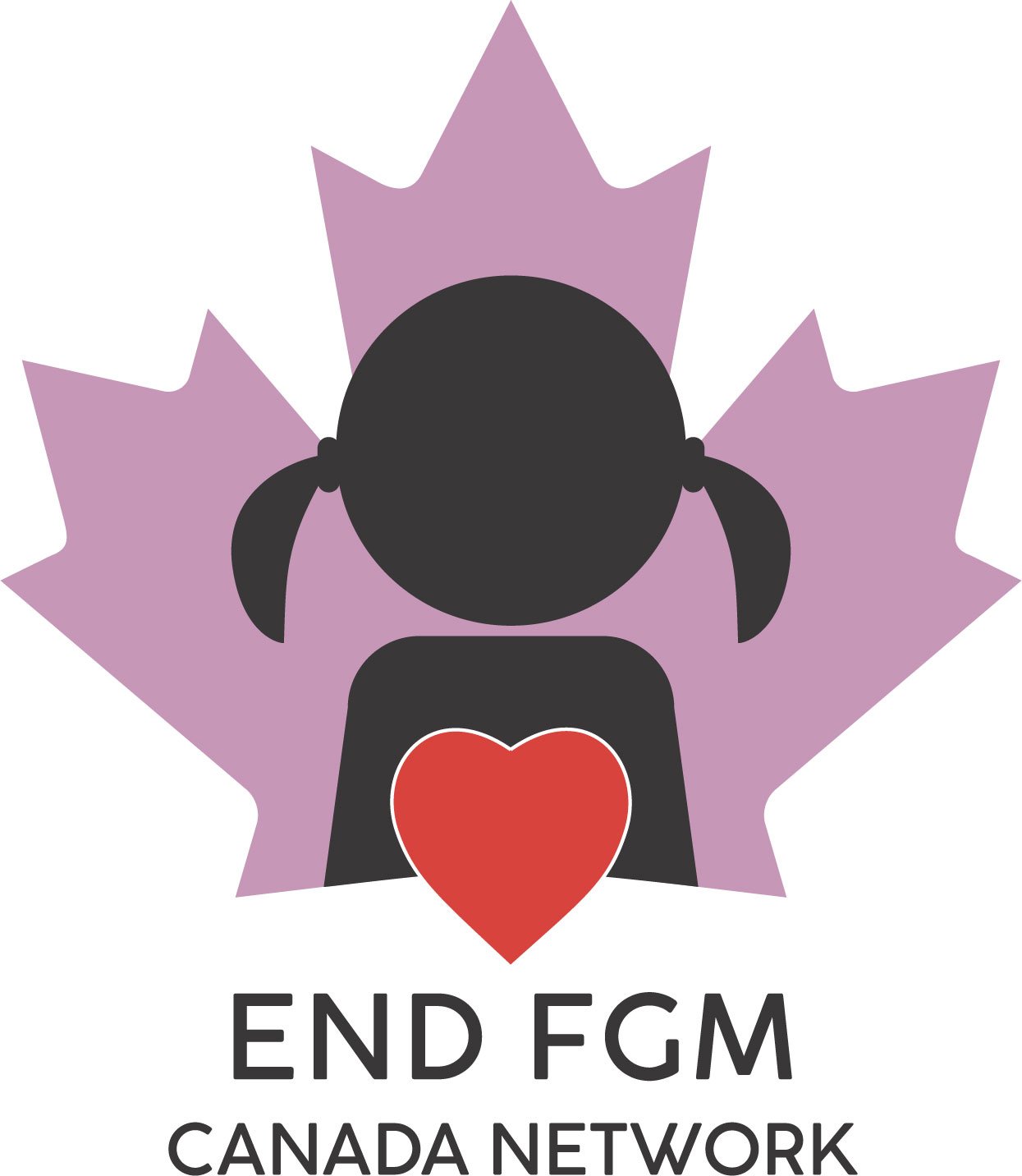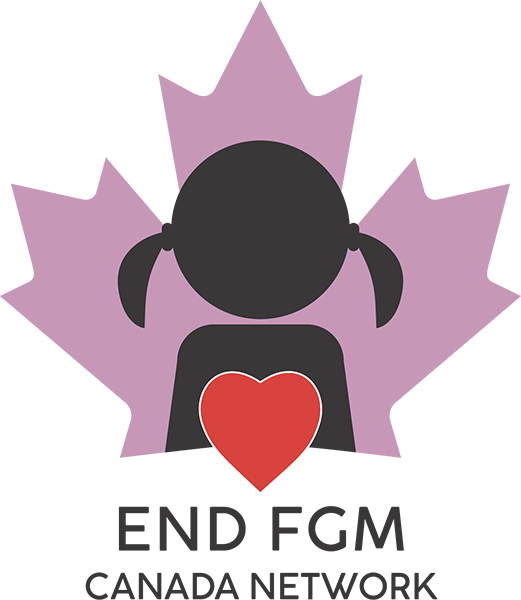
Our Team
Our Staff.
-
National Director
Alisa is passionate about social, economic, and environmental justice and working collaboratively to dismantle systems of oppression. Alisa has a master's degree in International Community Development from the University of Calgary. She has nearly 20 years of experience as a community developer in Calgary, co-creating and managing local and international projects in project design, implementation and evaluation. With a focus on social justice and human rights, Alisa has worked in the fields of homelessness and poverty reduction, gender-based violence, and most notably counter-human trafficking.
"The work of the End FGM Canada Network is to strengthen and support systems that protect women and girls from FGM/C. This can only be done when people recognize this act as a human rights violation and crime within Canada. We must continue to work together to end all types of gender-based violence."
-
National Network Coordinator
Warda Warsame is based in Toronto and has worked for over a decade in community development and settlement services. She is passionate about supporting marginalized and diverse populations, particularly newcomers to Canada, by helping them navigate complex systems, advocating for underserved communities, and addressing systemic barriers. Her work focuses on gender justice, anti-FGM advocacy, and social equity. Warda holds an undergraduate degree in English and a Master’s in Humanities, with research interests in gender studies, racialization, and social stratification in literature.“FGM/C should have been a horrific practice of the past that we look at with disdain. Unfortunately, it is not. It is gender-based violence, a human rights violation, and child abuse. The conversation around FGM/C needs to operate from that lens, and as Canadians, it is well past the time to be coy around this topic. I joined the Network to centre the voices and experiences of survivors and to bring to the table stakeholders from Canadian institutions and impacted community members."
-
Miss Kitty Campaign Manager
Dr. Ghazala Usmani is based in India and brings a unique blend of medical and digital expertise to her advocacy work. A trained dentist, she now works as a personal brand strategist and content specialist, helping founders, CXOs, and changemakers build impactful narratives online.Raised in a progressive Muslim household, Ghazala credits her father for nurturing her dreams without limitations and her mother for modeling quiet strength and resilience. These values deeply influence her commitment to gender justice and women's empowerment.
Ghazala was introduced to the issue of FGM/C while researching women's health and was shaken by its continued practice, especially in parts of India. This discovery inspired her to join the movement and work towards change.
“I was oblivious to the horror of FGM/C until I began reading survivor stories and reports. I couldn’t believe something so brutal still exists. It jolted me but it also awakened a deep desire to act. I may be one voice, but I want to use it to stand against FGM/C and support the women and girls affected by it.”
-
Breaking Barriers Facilitator- NL
Sa'adatu Usman is the Founder and Executive Director of Global Citizen Inc., a non-profit organization dedicated to empowering communities and newcomers through diversity and multiculturalism. The organization promotes economic and social cohesion while fostering a sense of belonging.As a mother who has personally experienced racial bullying and discrimination, as well as being a newcomer multiple times, Sa'adatu understands the challenges of navigating unfamiliar environments. Motivated by her own experiences, she established Global Citizen Inc. to address the gaps and barriers faced by migrant communities. With a background in computer programming and business management, combined with her personal experiences, she brings a unique perspective to her work as a social justice advocate and community organizer.
Sa'adatu's passion lies in empowering children to embrace their identities and appreciate the beauty of diversity through education and exposure. Her initiatives tackle issues such as racial bullying, lunchbox shaming, low self-esteem, and the promotion of economic and social cohesion while fostering inclusivity.
Currently, Sa'adatu and Global Citizen Inc. are partnering with the End FGM Canada Network. After recognizing the devastating impact that female genital mutilation (FGM) has on members of her community, Sa’adatu will be the Facilitator of the Breaking Barriers Program in Newfoundland and Labrador (NL).
Acknowledging the importance of collective action in supporting survivors and eradicating this practice, Sa'adatu continues to make a positive impact. Through her leadership, she promotes a culture of acceptance, empathy, and understanding while actively working against cultural and systemic inequities.
Our Board.
-
Co-Chair
Giselle Portenier is a journalist and filmmaker with a passion for human rights, especially the human rights of children and women. Her ground-breaking documentaries have helped change minds, hearts, and even laws. Her most recent award-winning film is In The Name Of Your Daughter. This documentary is about the brave Tanzanian girls who risk their lives to escape from female genital mutilation and child marriage. Portenier has written about FGM in the global and the Canadian contexts. Through In The Name Of Your Daughter she connected with three other women concerned about the lack of Canadian action. Together they co-founded the End FGM Canada Network.
“I helped found this network because I believe that female genital mutilation/cutting is a Canadian issue too. FGM/C is the worst systematic abuse of girls’ and women’s human rights in the world today. And it's, perpetrated by the very people who are supposed to protect them from harm. FGM/C is not an ‘over there’ issue. It’s an issue right here in Canada, where we have thousands of survivors and girls at risk. And yet little is being done to support survivors or to protect girls. Our goal is to change that.”
-
Jared Robbins is a Canadian accountant based in British Columbia. Over the years, he has grown his own practice while working closely with nonprofits, social-impact organizations, and community initiatives across Canada. He has provided his services to organizations and individuals in need, with a focus on strengthening financial transparency and governance. Through this work, Jared has seen firsthand how essential solid financial foundations are for organizations advocating for human rights.
He joined the End FGM Canada Network to support a mission he believes is critically important: protecting the safety, dignity, and rights of women and girls. Jaredbrings his financial expertise to help strengthen the Network’s operations, ensuring the organization is equipped to elevate survivors’ voices, educate the public, and advocate for meaningful policy change.
“I joined the network because ending FGM requires not only advocacy, but strong organizational foundations. This issue affects millions of women and girls globally, including many in Canada who remain unseen in official statistics. FGM is a profound violation of human rights, and the silence around it only deepens the harm. I believe that when organizations have the financial clarity and stability they need, they are better equipped to amplify survivors’ voices, engage policymakers, and drive meaningful change. I’m honoured to contribute to that work.”
-
Ghazal Azizi is a student journalist and third-year philosophy major at McGill University. She has been involved with the End FGM Canada Network since 2019 when she first learnt about the human rights violation. She is passionate about the intersection of media and activism. Ghazal has written stories about various legal battles at McGill, such as the Montreal MK Ultra experiments and unionization efforts, and investigative pieces about donor interference on university campuses. Ghazal likes to experiment with different mediums such as film, audio, and fine arts.
“I have seen the ignorance and reluctance to engage with Female Genital Mutilation in my communities, from women who will hesitate to say 'clitoris' to students who take issue with the word 'mutilation' for being culturally insensitive. In addition to policy and support, I believe the fight against FGM equally relies on a shift in our collective consciousness towards sexuality, especially one that empowers female pleasure. As youth, it is upon us to dismantle all systems of oppression that gender-based violence and oppression take root in."
-
Meseret Haileyesus is an intersectional feminist and a social justice advocate. She works for accessible sexual and reproductive health care and economic empowerment for women. Another priority is ending gender-based violence. Meseret is a midwife and public health practitioner. For more than a decade, she has collaborated on projects with non-profit organizations both in Canada and abroad. These initiatives focus on gender-based violence, gender equality and accessible maternal health care.
Meseret is the Director of the Canadian Center for Women Empowerment. The centre raises awareness on economic justice. She also founded Maternity Today. She is also a member of several Canadian and international organizations focusing on gender equality
Meseret has long been a powerful advocate for the rights of survivors of female genital mutilation. She uses her voice to fight for the end of this cruel and inhuman practice.
"I come from a country where 90% of women are mutilated. I've seen the harmful obstetric consequences of this practice, including maternal mortality. I believe FGM is a violation of girls and women's basic human right to life, dignity, and health. Sadly, FGM is a neglected tragedy in Canada. Our girls are being taken abroad for vacation cutting. The Canadian government must undertake efforts to mitigate the impact of FGM. I joined the End FGM Canada Network to help engage policymakers. We want them to understand the magnitude of the problem. We want to help enhance the well-being of survivors in Canada."
-
Janette Lyons is a CPA with over 30 years experience in Senior Financial positions. Janette is passionate about empowering women and fostering positive change, with a strong commitment to the organization's mission, and brings a wealth of experience in financial management and strategic planning.
“I joined “End FGM” because I want to bring about holistic change to the FGM issue. My vision is to leverage my financial acumen to optimize resource allocation, drive financial sustainability, and ensure fiscal responsibility. I am excited about collaborating with the dedicated team at “End FGM” to create lasting change and contribute to the success of the organizations goals and objectives.”
-
Kayowe Mune is a global holistic wellness advocate with many years of community development experience within Calgary and Minneapolis communities. Her mother is a well-known Canadian social worker and Somali community elder, who's the director of Somali Senior Center in downtown Minneapolis. She fostered her drive to advocate for survivors of FGM/C to access resources and more support in Canada. Kayowe also created and designed programs for intergenerational families in Calgary, with focus on bridging programs to newcomers and women's groups. She's a long time meditation and holistic wellness teacher, and understands deeply the lifelong trauma impact of FGM/C.
"There are not many safe spaces for survivors of FGM/C and very few informed service providers in Canada. From health workers, social workers and other systems. All need to help survivors feel safe, supported and nurtured in their journey back to wholeness. The community I'm from is more shame-focused when advocates speak up on FGM/C. Which further creates unsafe spaces for survivors to seek support. I wish to be part of End FGM Canada Network, to support the process of providing resources and knowledge to front-line workers and policymakers. Survivors need to feel safe and young Canadian girls must be protected."











